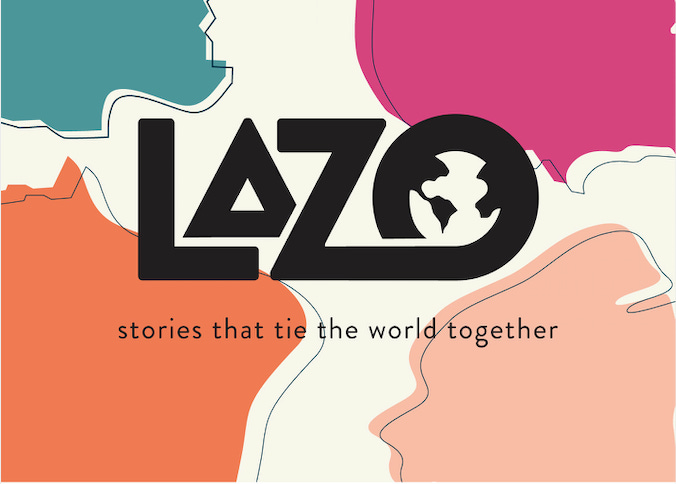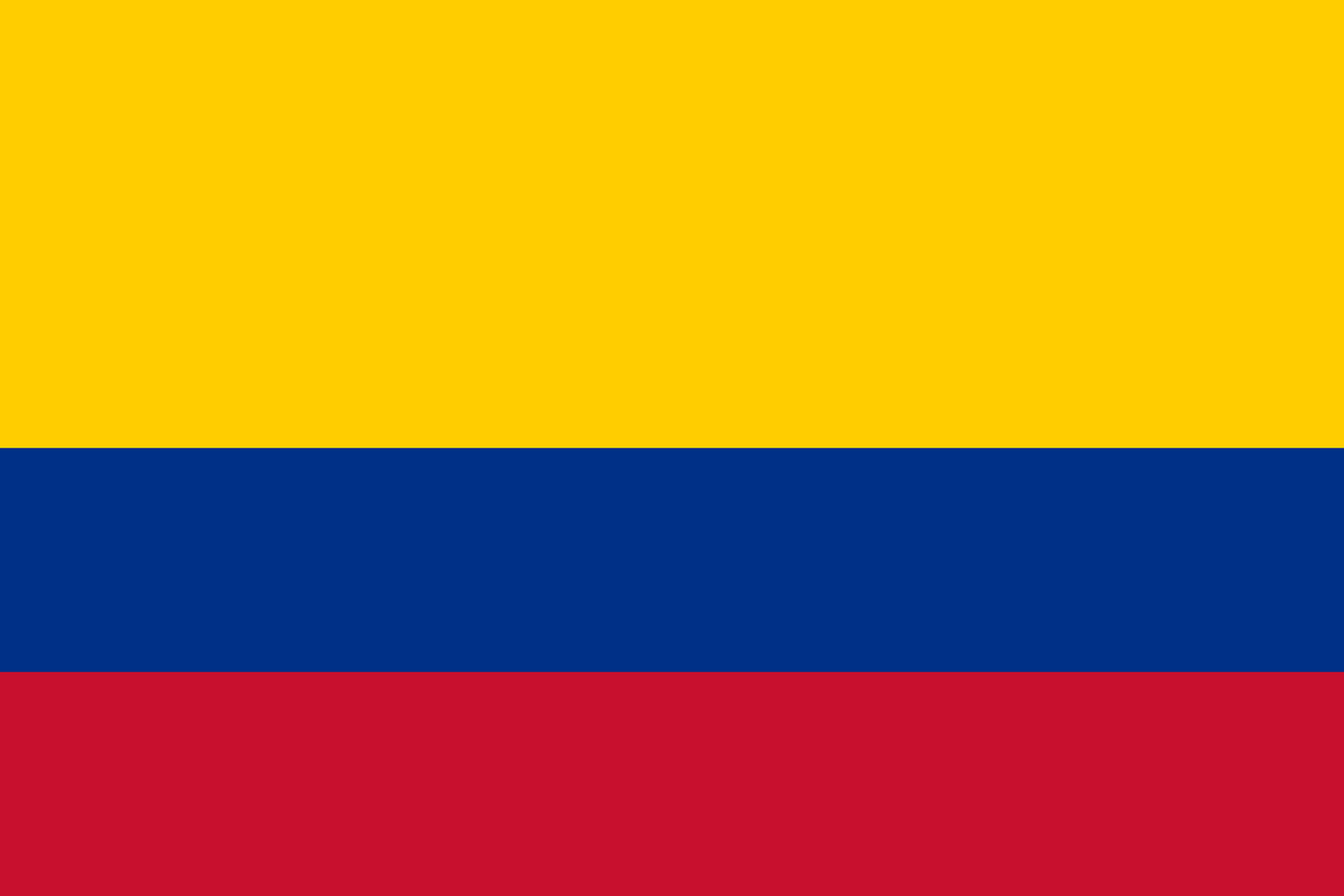#37 Colombia.
The 195 project is back.
Back by popular demand. FINALLY.
Serendipitously, I went to a party in Baltimore this Friday night where a New York-based DJ played guaracha, a form of electronic music that originated in Medellín, Colombia (it’s named after Cuban guaracha, which is a different style of music). Here’s a 34-second sample from 2:09 am:
This week is about Colombia.
Welcome to the 195 series, where I take you on a mini-tour of every country (and maybe some places that want to be countries). Each week, I'll feature a new location. Some you may have heard of, while others may be new to you. The point is to learn and nurture our curiosity about the wider world. Maybe you'll find a new artist you like, too. You can skip to the bottom if you only want the week's news.
Country Info:
Population: Roughly 51.8 million.
Current government: Colombia has a republican government whose constitution dates to 1991. Like in the U.S., the president and his cabinet exercise executive power. A bicameral congress is in charge of legislating.
The current president is a former guerrilla named Gustavo Petro, sometimes called Colombia’s first left-wing president. He came to power in 2022 and has since overhauled the country’s tax code. But he’s encountered problems implementing other elements of his ambitious reform agenda.
Three academics wrote for the London School of Economics last year:
“Several coalition parties have distanced themselves from the president, and Petro no longer enjoys an absolute majority in any of the two chambers. This has challenged the president’s ability to enact his ambitious legislative agenda. Only his tax proposal has become law out of the five major reforms brought to Congress. The other reforms introduced, namely health, pension, and labour, are stalled in Congress, while the ambitious ‘Total Peace’ agenda is faltering.”
Language: Spanish is the country’s official language. Explorers from Spain landed in the country in the 1400s, and colonization began in earnest in the early 16th century. Colombia is even named after Christopher Columbus.
However, the country is also home to over 100 other languages, including 68 indigenous languages with official status in some regions. Here’s a video from Al Jazeera about some of the indigenous languages spoken in the country.
Religion: Around 90 percent of the country practices Catholicism, thanks once again to the history of Spanish colonialism.
Standout artist: Oscar Murillo, a painter sometimes called the “21st-century Basquiat.” Murillo was born in Colombia, moved to London as a child, and returned to his village during the pandemic. He’s a perfect example of the multicultural border hoppers that Lazo likes to highlight.
He told the Guardian, “I don’t really have a home. The work began, many years ago, to take me everywhere.”
Standout film: Land and Shade (La Tierra y La Sombra), a 2015 film about a farmer who returns to his village after 17 years to find his family threatened by mysterious forces.
A surprising thing: Colombia is the second most biodiverse country in the world, trailing only Brazil to the south, and exports flowers, coffee, and emeralds. One out of every ten animals in the world lives in Colombia. OK, maybe you’re not super surprised by that, but it’s still impressive.
Story of the week: Reuters profiled the secretive Colombian guerrillas who could decide the fate of a final peace plan.
You can also read Lazo Magazine’s dispatch from Colombia’s diverse Sibundoy Valley.
Lazo Magazine is on social media. You can follow along on Facebook, Twitter, LinkedIn, and Instagram. And if you can donate to Lazo Magazine or become a paid subscriber to this newsletter, that’s always appreciated.
What I’m writing:
• I spoke to the family members of U.S. citizens currently held by Hamas in Gaza. They were at the Democratic National Convention in Chicago this week, advocating for their loved ones’ return.
• My colleagues and I wrote about all of the elephants in the room at the Democratic National Convention, issues that barely got a mention but perhaps should have.
What I’m reading:
• Azerbaijan formally applied to join the BRICS bloc of developing economies one day after Russian President Vladimir Putin visited the oil-rich South Caucasus country to shore up regional ties, the Associated Press reports.
• Ukraine’s parliament passed a bill creating a legal path to ban a Russian-aligned branch of the Orthodox church, the New York Times reports.
• Ukrainian authorities ordered the evacuation of Pokrovsk, a key city in the Donbas region, as Russian forces continue to advance in the east of the country, despite Ukraine’s ongoing offensive into Russia’s Kursk region, the BBC reports.
• Negative remarks about Russian President Vladimir Putin have increased on social media since Ukraine launched an incursion into Russia two weeks ago, according to a firm that tracks Russian attitudes. The New York Times has the story.
• The Czech Republic will buy ammunition for Ukraine with income from frozen Russian assets, Reuters reports.
• The German government will stop new military aid to Ukraine as part of the ruling coalition's plan to reduce government spending, Politico Europe writes.
• The revelation that a team of Ukrainians blew up the Nord Stream natural gas pipelines while using Poland as a logistical base has ignited a dispute between Berlin and Warsaw, the Wall Street Journal reports.
• Lithuania’s Foreign Minister Gabrielius Landsbergis abandoned his bid to become a European commissioner after a bitter rift with President Gitanas Nausėda, Politico Europe reports.
• Lithuanian and German officials took part in a ceremony marking the start of construction for a new military base that will house up to 4,000 combat-ready German troops, DW reports.
• Serbia’s President Aleksandar Vučić locked down a deal to supply the European Union with lithium to power its future electric vehicle fleet. Politico Europe reports that the project reawakened a mass movement against the mining project blessed by Brussels and Berlin.
• The Washington Post reports that Jared Kushner wants to turn a wild stretch of Albania into a luxury resort.
• Bulgarian President Rumen Radev refused to appoint a caretaker government, Politico Europe reports. The decision indefinitely delays a parliamentary election previously announced for October 20.
• Police in Pakistan arrested a man accused of spreading disinformation about a deadly stabbing attack last month that helped spur far-right and anti-immigrant riots across Britain, the Washington Post reports.
• Lawyers seeking a British arms export ban submitted claims of Israeli war crimes to Britain’s High Court, the Guardian reports.
• The United Nations Secretary-General António Guterres called for a weeklong ceasefire in Gaza to allow vaccinations against polio, the New York Times reports. The announcement came hours before the Hamas-run health ministry confirmed the first case of the disease in the enclave in years.
• Israeli airstrikes on Yemen’s Hodeidah port last month appeared to be an “indiscriminate or disproportionate attack on civilians,” which may amount to a war crime, Human Rights Watch said.
• Federal judges voted to go on strike across Mexico, protesting President Andrés Manuel López Obrador’s proposed overhaul of the country’s judicial system, the New York Times reports. Obrador wants judges to be elected rather than appointed. Critics say the change could result in people with minimal legal experience being elected to judgeships.
• Nicaragua is forcing 1,500 churches, religious groups, and civil society groups to close after authorities alleged they failed to report their financial statements, CNN reports.
• India announced plans to hold regional elections in the disputed territory of Indian-administered Jammu and Kashmir after a 10-year hiatus, the BBC reports.
• Afghanistan’s Taliban regime issued a new set of “vice and virtue” rules regulating personal conduct, the Associated Press reports. The laws forbid women from singing, reciting, or reading aloud in public, prohibit unrelated men and women from looking at one another, and ban playing music.
• Protests erupted in Indonesia against the government’s attempts to reverse a court ruling that would open up elections to rivals from smaller parties, the BBC reports.
You can write to me for any reason: c.maza@protonmail.com.




